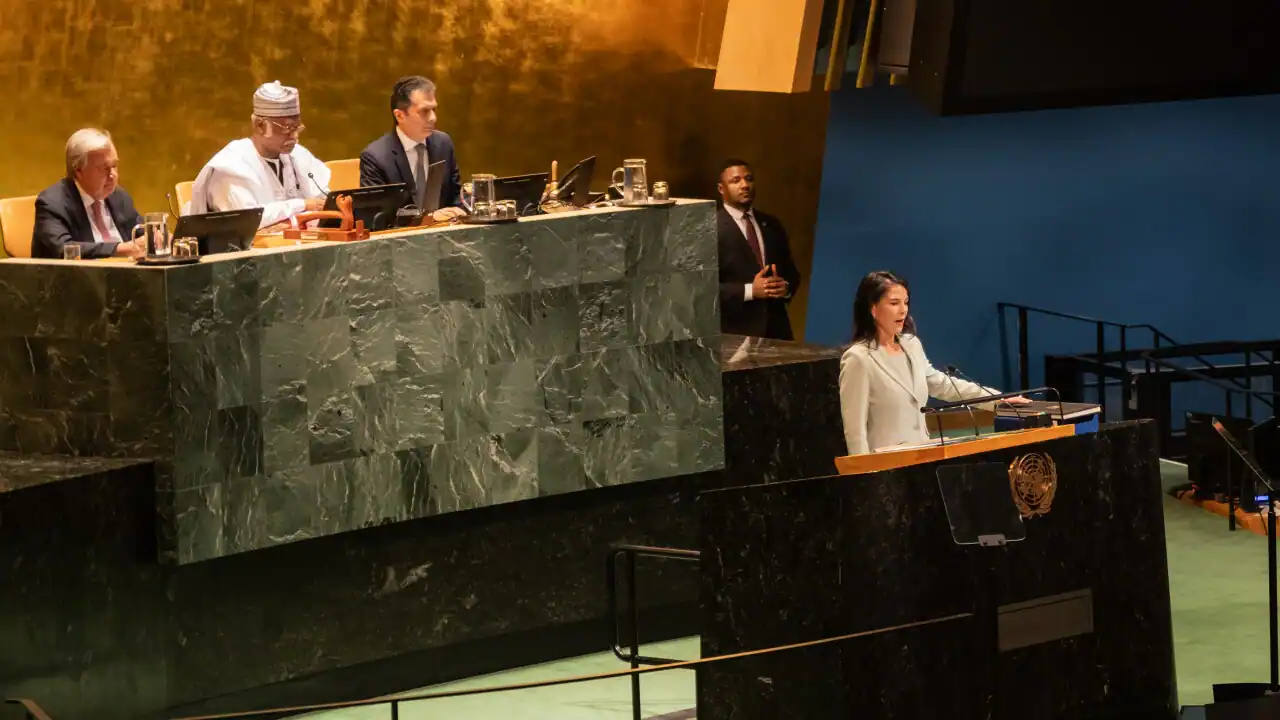By Cameron Carr,Deborah Groarke
Copyright sbs

This year's event is attracting significant attention because multiple leaders have announced their intention to recognise Palestine as a state during the proceedings. President of UNGA Annalena Baerbock said eight decades after the UN was first established in 1945, it now has a duty to look to the future. “This is a year to adapt, to evolve and to build the United Nations we need for the next 80 years, for the lifetimes of our children. It is a moment to show eight billion people around the world why this organisation still matters.” Each year, world leaders gather in New York for the UNGA's several days of speeches, discussions and votes on resolutions. It is tradition for Brazil to always be the first member state to speak when the General Assembly comes together because it was the country to step up in the early years of the world body, when other countries were reluctant to do so. The United States comes second because it hosts the UN headquarters in New York. From there, the list of nations to give speeches is based on hierarchy and generally on a first-come, first-served basis. Imogen Saunders, the director of the Centre for International and Public Law at the Australian National University in Canberra, told SBS News the UNGA has multiple important functions. “It's the forum in which UN members can get together to discuss issues, but also to issue resolutions in terms of matters that are going on in the world, calling on states to do things, commenting on various matters. “It also plays really important roles in various elections to the UN, elections of International Court of Justice judges, and elections of Security Council members. “And recently it's been playing an increasingly important role in directing advisory opinion requests to the International Court of Justice.” After starting with 51 members, there are now 193 countries that are part of the Assembly, with the Holy See and Palestine having observer status. Palestinian President Mahmoud Abbas will address the UNGA this week via video after the United States said it would not give him a visa to travel to New York . Several countries are moving to recognise Palestinian statehood at this week's UNGA, including Australia, Canada, the United Kingdom and France . Prime Minister Anthony Albanese said Australia will recognise Palestinian statehood this week, “predicated on the commitments Australia has received from the Palestinian Authority.” “A two-state solution is humanity's best hope to break the cycle of violence in the Middle East and to bring an end to the conflict, suffering and starvation in Gaza,” he said. British Prime Minister Keir Starmer also made the same pledge. “With that (two-state) solution now under threat, this is the moment to act,” he said. Saunders said a major feature of the assembly is that its resolutions are recommendations — not binding directives. That essentially means member states cannot be forced to follow certain courses of action, because the idea is to cooperate. “Although they're not binding in and of themselves, if you have enough General Assembly resolutions that build up over a period of time, they can actually contribute to the development of binding norms of international law,” she said. The UNGA also has significant influence through a range of agencies that carry out the UN's mandates. “It is the only body where every UN member has a say,” Saunders said. “And so when you have a resolution that is either unanimous or near unanimous, then that means that you'll essentially have a plebiscite of all the countries in the world and that carries significant moral weight.” download our app subscribe to our newsletter



